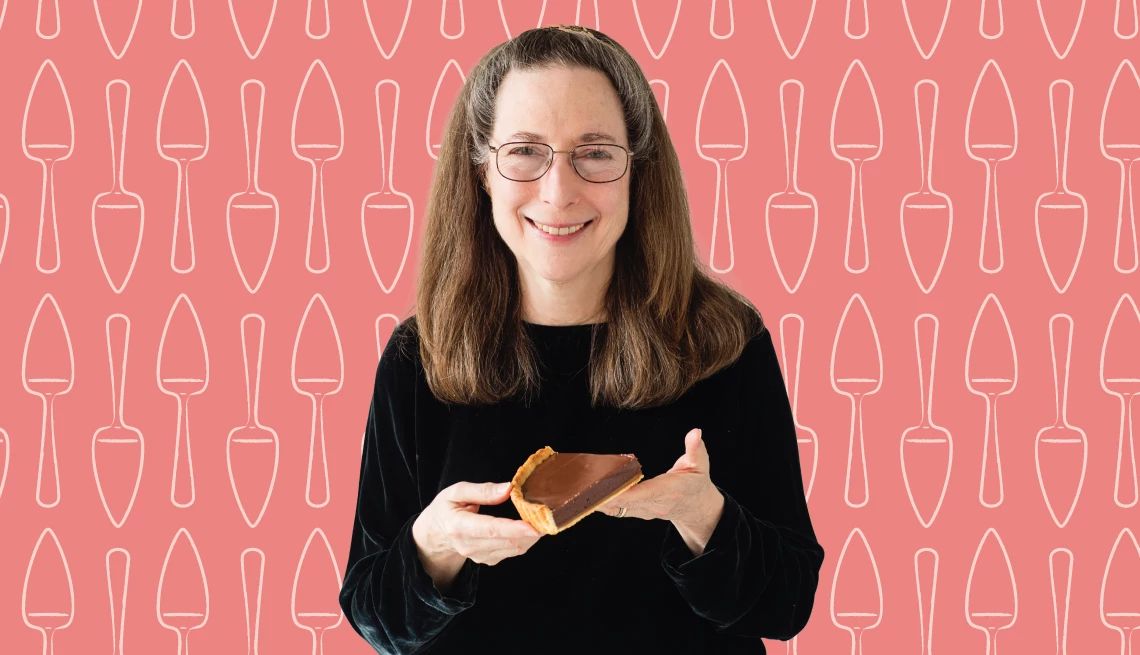
5 Reasons Why ‘The Cake Bible’ Feels Brand New For the 35th Anniversary Edition
- Select a language for the TTS:
- UK English Female
- UK English Male
- US English Female
- US English Male
- Australian Female
- Australian Male
- Language selected: (auto detect) - EN
Play all audios:
AARP ( Matthew Septimus) Facebook Twitter LinkedIn
Most of us have experienced the heartbreak of a recipe gone wrong. Sometimes the muffins come out crumbly. Or maybe the cake collapses down the center. And for all the hard work and good
intentions, we are left with a demoralizing combination of disappointment and dirty dishes. But Rose Levy Beranbaum, 80, has spent the better part of her career helping bakers avoid those
kinds of mishaps.
Her classic 1988 cookbook The Cake Bible pulled out every stop to ensure delicious results. Throughout the massive book, Beranbaum offered hundreds of recipes with remarkably specific
measurements, instructions and notes. She used weight-based measurements in addition to volume (an uncommon practice at the time, if a more precise one). She also often shared the scientific
explanations behind her instructions, helping bakers of all levels troubleshoot and learn from their misfires. The book even introduced a new technique: the “reverse creaming method,” a
simple adjustment to the way batter was commonly mixed at the time, has since helped countless home bakers to achieve perfectly flat cakes.
“Ever since I was a little girl, when somebody says something can’t be done, I’ve wanted to find out why not,” explains Beranbaum. In 1989, The Cake Bible won the James Beard Award for
Cookbook of the Year (a prize known at that time as the Food and Beverage Book Awards, sponsored by the International Association of Cooking Professionals and Joseph E. Seagram & Sons Inc.).
Beranbaum would go on to write many more books and win two more James Beard awards, eventually earning an induction into the foundation’s Who’s Who of Food and Beverage in America in 2004.
“Beranbaum may be the most meticulous cook who ever lived,” wrote the New York Times in 1998. The Cake Bible, Epicurious raved in 2015, had “changed the way bakers approached their craft.”
Perhaps Food52 captured the “classic” best when it offered readers one simple assurance: “You will not bake a bad cake from this book.”
The next chapter
Three-plus decades after the book’s release, Beranbaum is still innovating. For The Cake Bible: 35th Anniversary Edition (Oct. 2024), Beranbaum revisited the influential original text,
adding charming stories from the book’s many fans and relentlessly retesting old recipes to retrofit them for modern grocery aisles. She added new recipes, too — all held to the same
meticulous standard she set so many decades ago.
“I used to not like being described as a food scientist,” says Beranbaum. “I guess I felt that was the antithesis of being an artist. But it actually enables you to be a creative artist;
[people now] see how much control it gives you.”
In anticipation of the new edition, AARP caught up with the celebrated cookbook author about the book’s most impactful revisions and the culinary, cultural and personal shifts that inspired
them. Read on for five reasons The Cake Bible: 35th Anniversary Edition feels brand-new.
“Maybe it was a good thing we waited 35 years,” Beranbaum says about updating “The Cake Bible.” “We learned so much.” Matthew Septimus Baking has continued to gain recognition as equal
parts art and science
Advancements like the availability of high-quality oven thermometers have made The Cake Bible’s precise approach more accessible. Changes to packaging, tools and ingredient availability are
reflected. Chocolate previously wasn’t labeled with its cacao content, but now it is, making it easier on bakers to get more specific with certain flavors. And now, the added level of detail
on standard packaging, chocolate or otherwise, allowed Beranbaum an additional degree of specificity in her revised ingredient lists. And that, in turn, offers readers even more consistent
results — building on what set Beranbaum’s recipes apart all those years ago. After all, her meticulous detail was somewhat of a revelation when The Cake Bible was released. “People
considered scales only for weighing their bodies,” Beranbaum recalls, noting how unusual it was at the time to weigh ingredients for recipes, especially in the U.S. “Now, I would say 90
percent of baking books now have not only weight, but grams.”